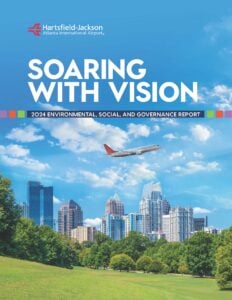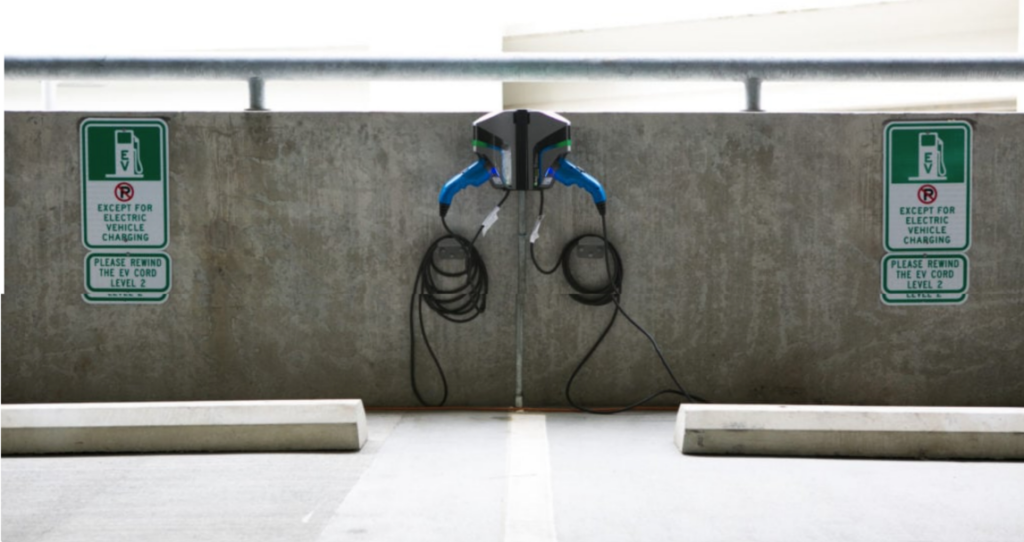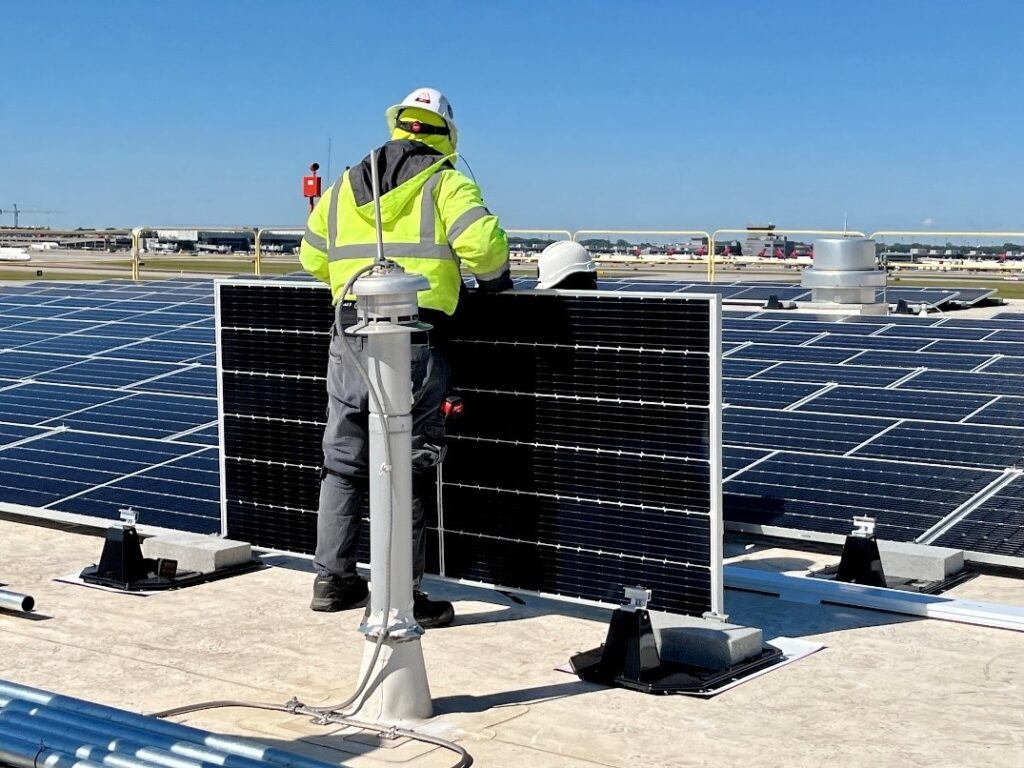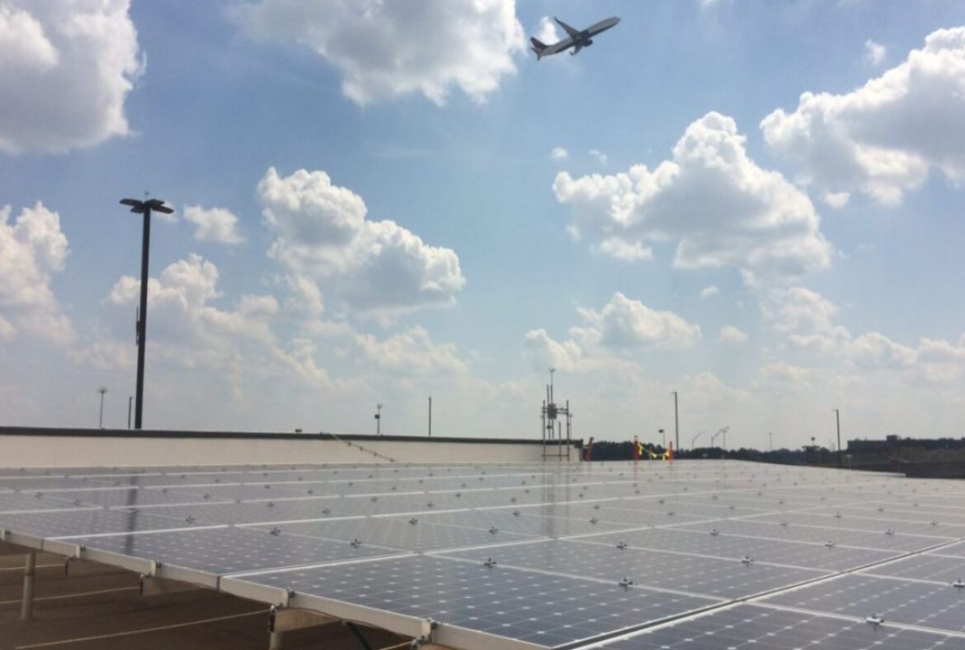
Our Vision and Goals
Our vision is to be the most sustainable airport in the world by reducing our impact on the environment, building resiliency and efficiency into operations, facilitating cleaner transportation, improving the communities around us, while driving the economic prosperity of our region.
Our sustainability goals include:
- Net zero greenhouse gas emissions by 2050
- 100% clean and renewable energy by 2035
- 90% diversion of waste generated at ATL from landfills by 2035
You can learn more about ATL’s net zero and renewable energy goals in our Carbon Policy in the Policies, Plans, and Reports section below.
How can you travel sustainably?
At ATL, we have various ways that passengers can actively participate in sustainable travel. We have water fountains where passengers can refill their water bottles; we have separate waste and recycling trash cans; and we provide relief areas for service animals and pets.
Policies, Plans, and Reports
The City of Atlanta Department of Aviation is proud to present its fourth Environmental, Social, Governance (ESG) Report for 2024.
As the world’s busiest and most efficient airport, Hartsfield-Jackson Atlanta International Airport has the responsibility to prioritize environmental stewardship and social issues within its operations while continuing to drive the economic prosperity of the region.
Download the 2024 ESG Fact Sheet
Download the 2023 ESG+P Report
Download the 2023 ESG+P Fact Sheet

The City of Atlanta Department of Aviation is dedicated to exceeding customer expectations through fiscal and environmental responsibility at Hartsfield-Jackson Atlanta International Airport and to keeping the airport a good neighbor to the larger community that it serves. The DOA will continue to integrate sustainable practices into airport activities, products, and services through ongoing improvement of airport-wide management practices and employee education.
ATL has made great strides in reducing our energy demand through several strategies, including our first Carbon Policy. The Airport will continue to prioritize the rapid reduction of our Scope 1 and 2 emissions. We are committed to the City of Atlanta’s 2019 Resolution No. 10-R-3783 to transition to 100% Clean and Renewable Energy by 2035, as well as the ACI 2050 Net-Zero goal.
Learn more here.
The goal of the Zero Waste Policy is to divert 90 percent of the total waste generated at ATL from landfills by 2035. As the world’s busiest airport, ATL generates an estimated 13,000 tons of waste each year. The Zero Waste Policy will limit damage to the environment, depletion of natural resources, and will increase sustainability.
The Energy and Water Policy puts measures in place to conserve energy and water during construction and operation of airport facilities.
The City of Atlanta’s minimum requirement of LEED Silver certification for all new construction was passed in 2003. This standard includes the new construction of buildings, roadways, and runways. This policy also establishes LEED standards for our existing buildings and renovations. It also applies the term “deconstruction” to plans versus “demolition” to ensure deconstructed material is reused where possible.
ATL is committed to employing sustainable design and construction practices while maintaining operations as the world’s busiest airport. ATL’s Planning and Development (P&D) Sustainability Standards integrate industry best practices, aiming to reduce water use, energy consumption, and environmental impacts, including embodied carbon in building materials. ATL was the first airport to earn LEED for Communities certification and continues to pursue additional certifications across numerous projects and rating systems, including LEED, Parksmart, and Envision. Innovative practices and technologies, like the modular construction approach, carbon mineralization of concrete, and maturity meters that more accurately predict in-situ strength of concrete—reducing overall cement content and associated embodied carbon—further exemplify ATL’s commitment.
The Airport’s Green Building and Carbon Policies focus on reducing Scope 1 and 2 emissions, including the use of solar array installations as well as Whole Building Life Cycle Assessments, which quantify the environmental impacts of structure and enclosure materials. Project teams then specify environmental targets for these materials and coordinate with the contractors to procure materials that meet or exceed these targets as demonstrated by Type III Environmental Product Declarations (EPDs). Through the ATL Next Capital Improvement Program, ATL seeks to be a leader in sustainable aviation, maintaining the City of Atlanta’s initiatives and the P&D Standards at the forefront of future development plans.
The Sustainable Food Court Initiative (SFCI) is derived from the by the City of Atlanta’s Plastic Ordinance that requires all City of Atlanta buildings to reduce the use of single-use plastic. The SCFI is included in Concessions contracts through the following provision: “Non-compostable single-use serviceware, including plastic bags, plastic straws, and polystyrene items are prohibited.” In order to achieve zero waste by 2035, ATL is working to address contamination in the waste stream, and increase the amount of recyclable and compostable materials used by passengers and procured by internal and external stakeholders.
Initiatives and Programs
ATL continues to expand its alternative fuel infrastructure, installing electric vehicle chargers for both passengers and employees at existing facilities and in new construction. ATL is also encouraging airlines and other Airport tenants to convert their commercial vehicle and ground support equipment fleets from gas and diesel to electric. Currently, EV chargers can be found at the locations listed here: more information.

We are working to increase renewable energy use at the airport by installing solar panels on additional buildings. The Commercial Vehicle Hold Lot facility houses a 101-kWh array which was installed in 2017. Currently, we are working with Cherry Street to install additional solar panels. Solar panels were installed on Fire Station 40 in November 2024, and on Fire Station 33 in April 2025. Both arrays provide 40% of the needs of the Fire Stations.

Twice a year, ATL partners with the Flint River Keepers and other stakeholders to remove trash from the Flint River. Starting as a small spring in East Point, the Flint flows directly underneath the Airport and then joins the Chattahoochee River and flows into the Gulf Coast’s Apalachicola Bay.
The Latest
Here you will find information on events and programs that ATL Sustainability has led or is actively involved in.
Important Links
The Department of Aviation consistently tracks sustainability data and updates it annually.
This figure highlights third-party sustainability verifications that the Airport has received and is pursuing.
![5[1] 5[1]](https://www.atl.com/wp-content/uploads/2025/07/51-540x405.png)
The dashboard displays various environmental impacts the Department of Aviation is actively offsetting through its use of solar power.
















![1[1]](https://www.atl.com/wp-content/uploads/2025/07/11.png)
![2[1]](https://www.atl.com/wp-content/uploads/2025/07/21.png)
![3[1]](https://www.atl.com/wp-content/uploads/2025/07/31.png)
![4[1]](https://www.atl.com/wp-content/uploads/2025/07/41.png)
